Lewis Hamilton’s farewell at Mercedes ends the greatest era in F1 history – but not in the way you think
Hamilton races his final grand prix for Mercedes this weekend after six world championships, 12 years and 84 grand prix victories. But his Silver Arrows legacy goes beyond those numbers, as Kieran Jackson explains
Your support helps us to tell the story
From reproductive rights to climate change to Big Tech, The Independent is on the ground when the story is developing. Whether it's investigating the financials of Elon Musk's pro-Trump PAC or producing our latest documentary, 'The A Word', which shines a light on the American women fighting for reproductive rights, we know how important it is to parse out the facts from the messaging.
At such a critical moment in US history, we need reporters on the ground. Your donation allows us to keep sending journalists to speak to both sides of the story.
The Independent is trusted by Americans across the entire political spectrum. And unlike many other quality news outlets, we choose not to lock Americans out of our reporting and analysis with paywalls. We believe quality journalism should be available to everyone, paid for by those who can afford it.
Your support makes all the difference.The shock and bemusement reverberated across the paddock when the news broke. In fact it is difficult to overemphasise the brutal reaction the cutthroat Formula One circus – whether it be media, former drivers or fans – had in September 2012 when Lewis Hamilton left McLaren for Mercedes.
Even the wishes of his father and manager, Anthony, were ignored. As Jeremy Clarkson put it so tactlessly on a 2012 episode of Top Gear: “Is that not a bit like moving from Manchester United to West Ham?” And sorry Hammers fans – it was not a compliment.
Yet six world championships, 12 years and 84 grand prix victories later, Hamilton’s bold plunge into unchartered waters was his best-ever decision. A life-changing, history-altering decision. His only hope now will be that his Ferrari-inspired gamble works out in a similar style next year.
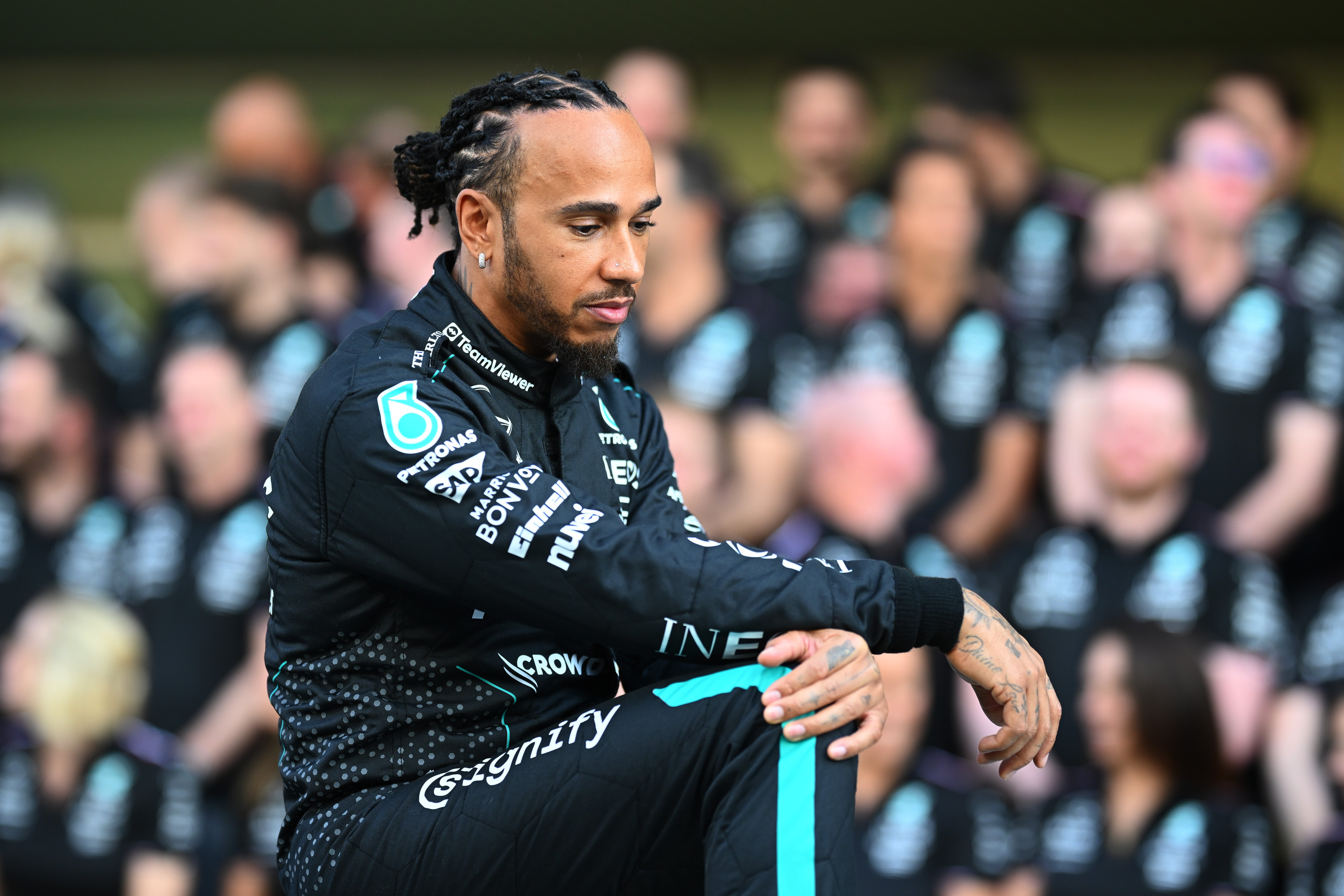
Sunday’s final race of the 2024 season in Abu Dhabi brings the curtain down on the most successful driver-team partnership in the history of Formula One, as Hamilton takes to the track for the 246th and final time in Mercedes overalls. A partnership, in statistical terms, better than Michael Schumacher at Ferrari. Better than Ayrton Senna at McLaren. Better than Vettel at Red Bull.
It promises to be an emotional evening at the end of an emotional year for the seven-time F1 world champion.
“I anticipated it would be difficult [this year] but massively underestimated how difficult,” he said on Thursday.
“It’s been a very emotional year for me. I’ve not been at my best in handling those emotions. So many of you have seen the worst of me and the best of me. I’m not going to apologise for either. I’m only human and don’t always get it right.”
Self-reflection has been one of Hamilton’s cornerstone traits in recent years, armed with a car incapable of winning races regularly since 2021.
But one decision he most definitely got right was leaving a 15-year association with McLaren for pastures new. Persuaded by the vision of three-time world champion Niki Lauda, acting as Mercedes’ non-executive chair, Hamilton gambled his peak years in the cockpit on a team that had never won a world championship.
There was one forlorn year: the debut campaign in 2013. But from his win at the second race of the 2014 season in Malaysia, amid new hybrid V6 engine regulations which Mercedes had clearly nailed, the most dominant era in the sport’s history was just getting started.
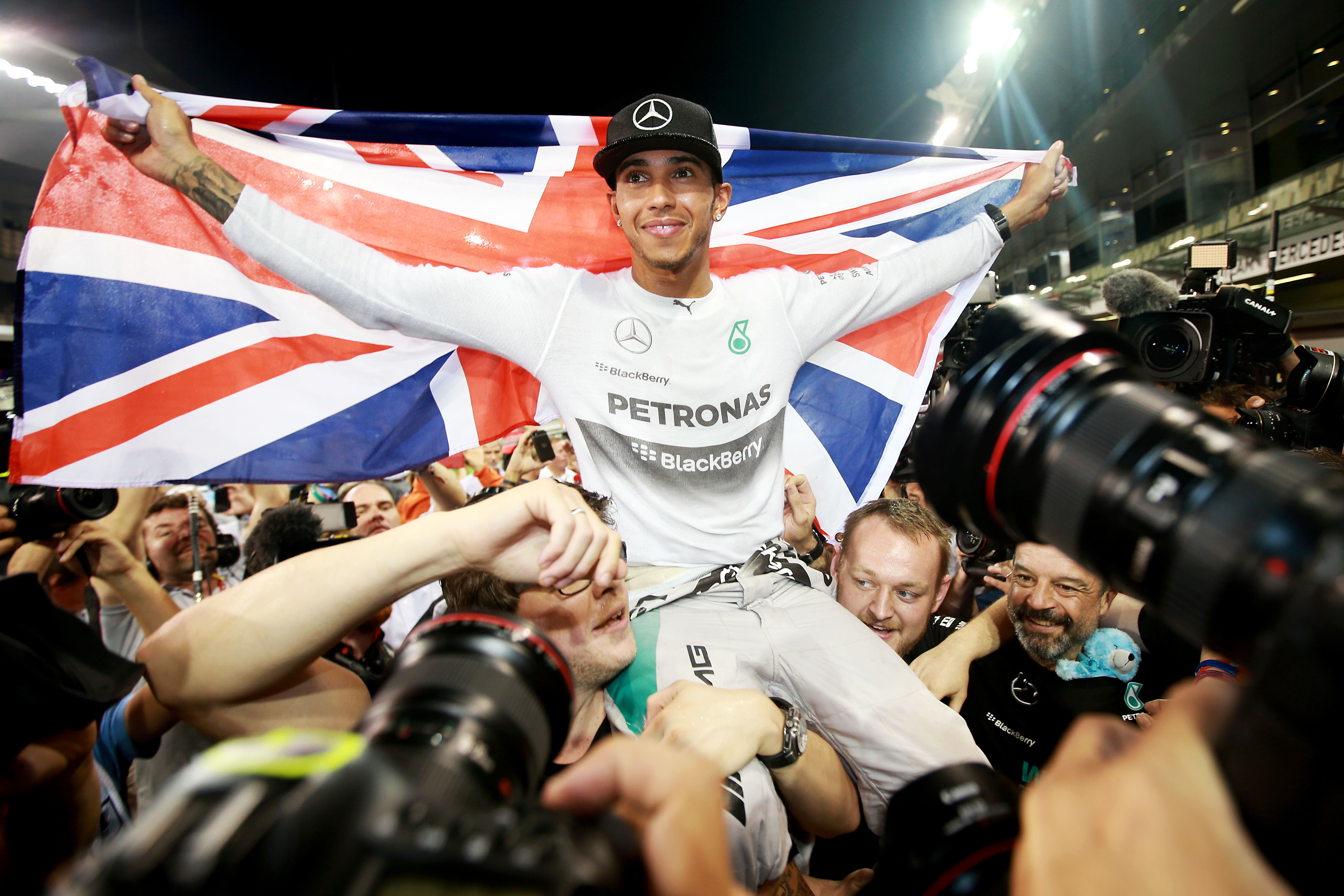
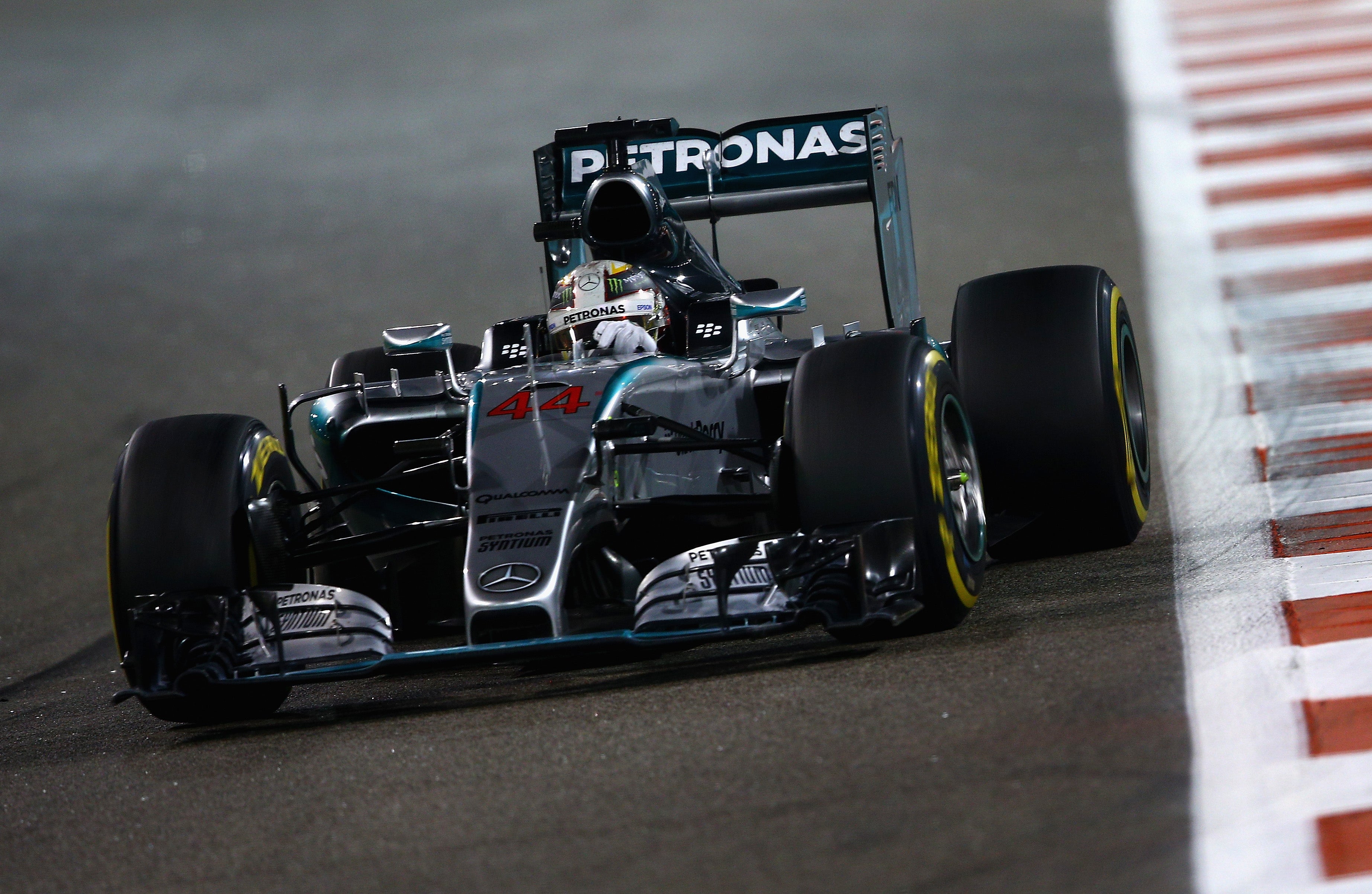
And it is somewhat fitting it should all end at the Yas Marina Circuit, a decade on from clinching his second world championship and his first for Mercedes with Prince Harry and Hamilton’s then-girlfriend Nicole Scherzinger cheering him on from the garage. A season which set in motion a journey of unparalleled success and a salivating three-year intra-team battle with Nico Rosberg.
Hamilton would go on to claim six titles in seven seasons, just missing out to an inspired Rosberg in 2016. A man so drained after a captivating title race that he immediately left the racing cockpit and retired. Valtteri Bottas replaced the German and played the role of the perfect teammate.
But be it Sebastian Vettel at Ferrari or a young talent called Max Verstappen at Red Bull, how did Hamilton constantly stay ahead of the chasing pack?
By reinventing the wheel.
“When I met him, Lewis had won one world championship,” James Vowles, Mercedes’ chief strategist throughout the glory years and now Williams’ team principal, tells The Independent. “But from 2013 going into 2014, he reinvented himself over the winter.
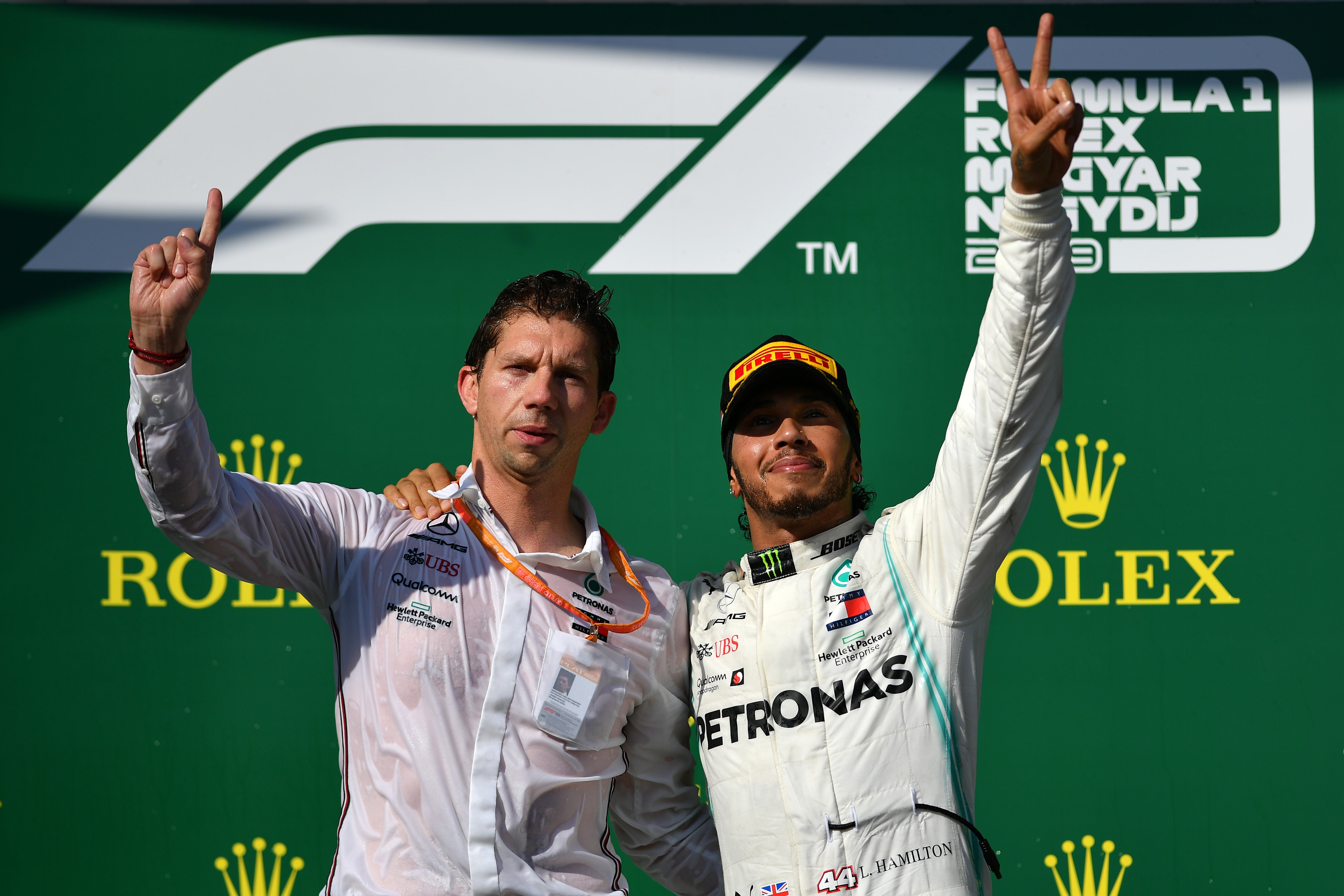
“He did that every year. How did he do that? A change of diet, training programme, lifestyle and support structure. He changed how he approached data and video and how effectively he worked with engineers.
“He was prepared to tear it up and start again. What I learned from him is this culture of when you keep winning, keep changing. In fact, change more. Because the person behind you is even more inclined to change in order to win.
“If you stay still, you fall back.”
But it wasn’t just for racing purposes that Hamilton looked to modify and evolve. Indisputably, Hamilton’s stance as a driver who transcended his sport will be one of his biggest legacies during his time at Mercedes, amid his unrelenting push for diversity and equality. And perhaps even his biggest.
Whether it be opportunities for ethnic minorities – a reminder: Hamilton is the sport’s only ever black driver – a push for LGBT+ rights in countries that disregard such liberties or pushing back against autocracy, Hamilton’s growth as a human being and spokesperson for issues beyond the racing line has occurred on Mercedes’ watch. Both deserve huge credit for this.

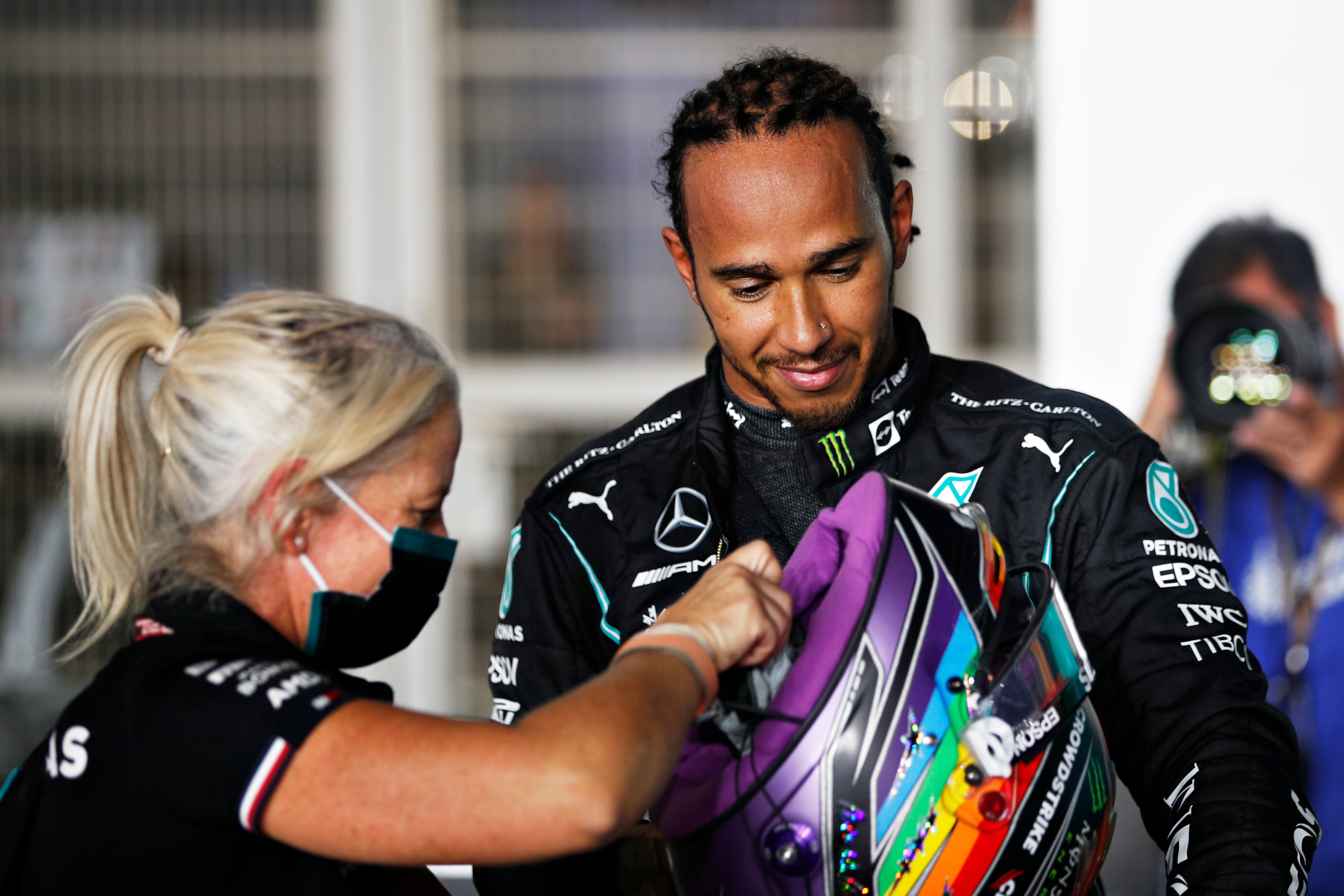

This all came to a head in 2020 when, a month after the growth of the Black Lives Matter movement, F1 returned in Austria and Hamilton led the grid in taking the knee. It was a powerful image, despite six drivers opting not to follow suit.
The Briton, who was racially abused as a child at school in Stevenage, Herts, also set up Mission 44 – a charity pushing for inclusivity in the motorsport world and beyond.
That shortened season because of the pandemic saw Hamilton pick up his seventh championship, putting him on par with Schumacher. Hamilton said this week that the 2020 car – the W11 – was his favourite car. And that goes for pure speed and its all-black livery, in a reflection of his off-track work.
But despite all of that success, his final years at Mercedes will be characterised by disappointment. First in 2021, amid that mammoth title struggle with Verstappen and the most contentious of endings here in Abu Dhabi, which in hindsight was the beginning of the end.
Hamilton returned, after two months away from the public eye, in 2022 with a generation of car which would trigger a near 1,000-day winless run.

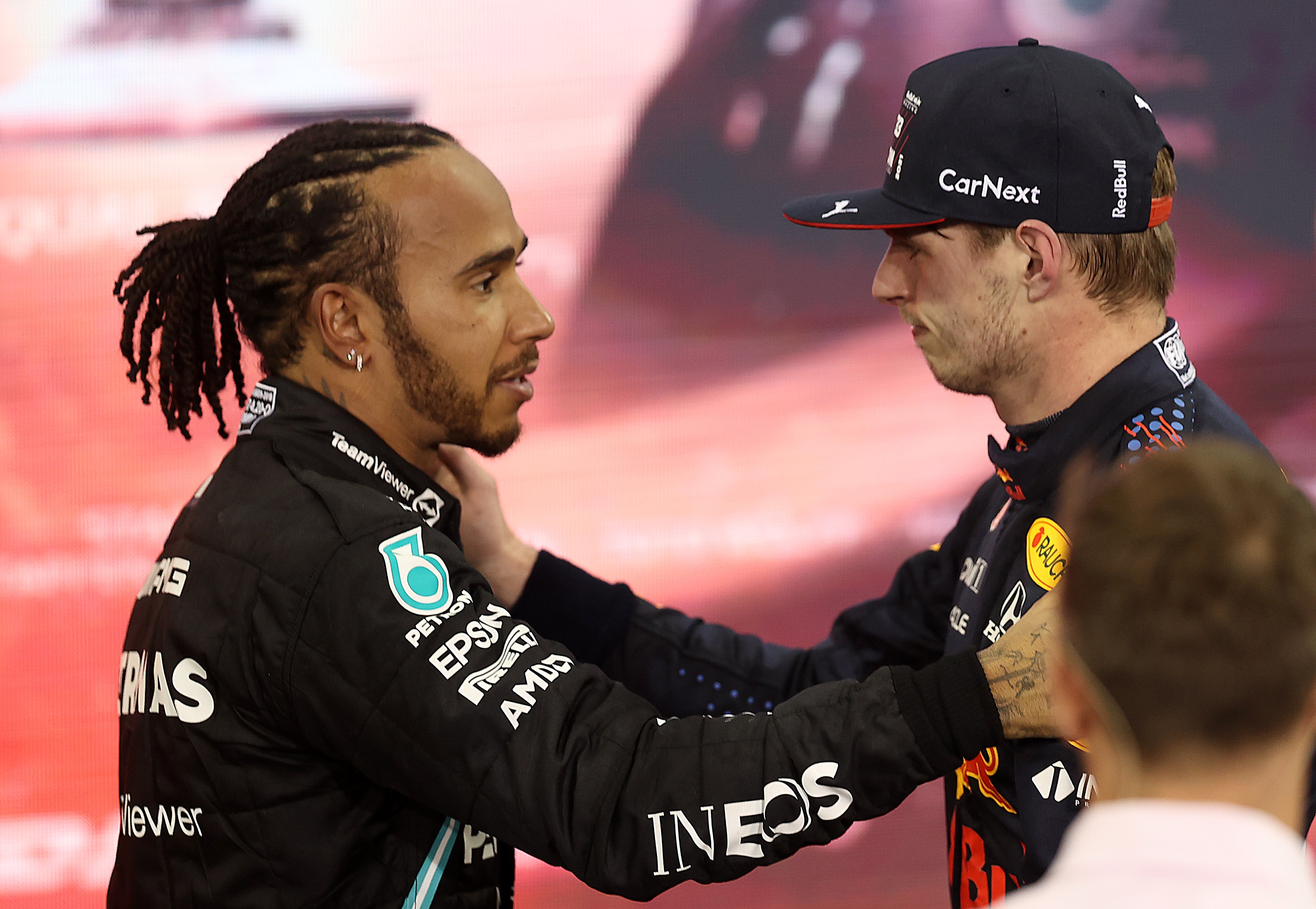
For the first time since he joined in 2013, Mercedes had got it badly wrong.
And so we reach now, or rather January, when Hamilton stunned the world and decided to move to Ferrari. The biggest transfer in F1 history will see out the 39-year-old’s time in the sport as he chases that elusive, record-breaking eighth crown. That is all that is missing from his collection now.
And what is promising, for his loyal supporters who will follow him over to the tifosi, is that Hamilton left McLaren when they entered a period of unprecedented failure. Only now, as they battle an on-the-up Ferrari for this year’s constructors’ title this weekend, are they back in the hunt. Whisper it quietly, but Ferrari do look on the cusp of producing a championship-winning car in 2025. The future looks brighter than it does at Mercedes.
However, we should not let recent events detract from Hamilton’s enduring legacy at Mercedes. A legacy of unparalleled success and an inspired insistence in doing it his own way.
But, most of all, he made a distinctive difference, in a manner which completely transcended his sport. All over the world, Hamilton is now more than just a racing driver. Mercedes were the team who guided him to that superstardom.




Join our commenting forum
Join thought-provoking conversations, follow other Independent readers and see their replies
Comments